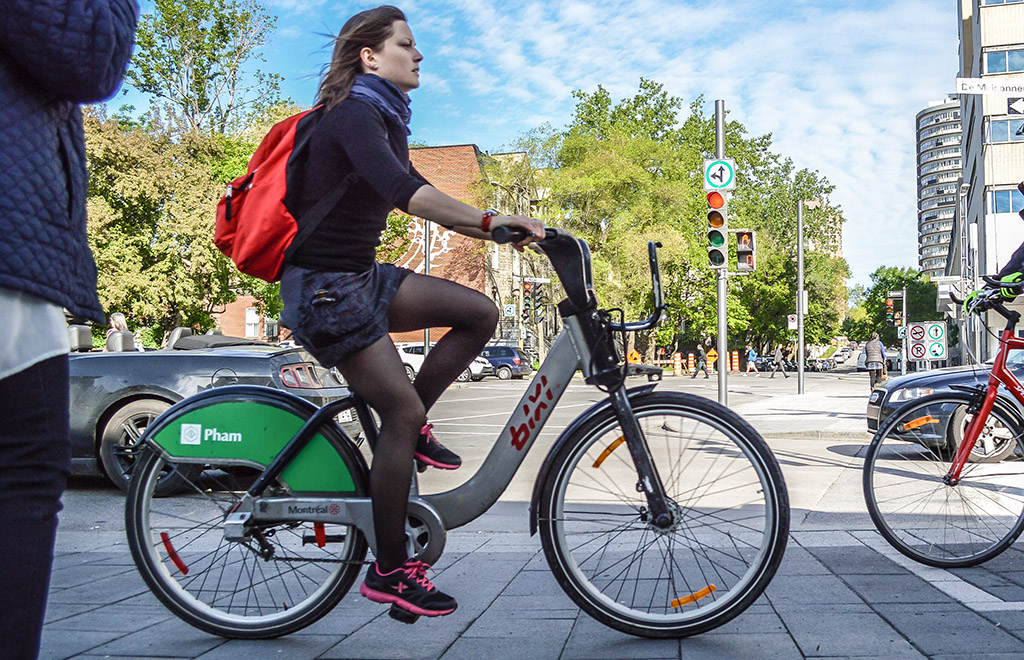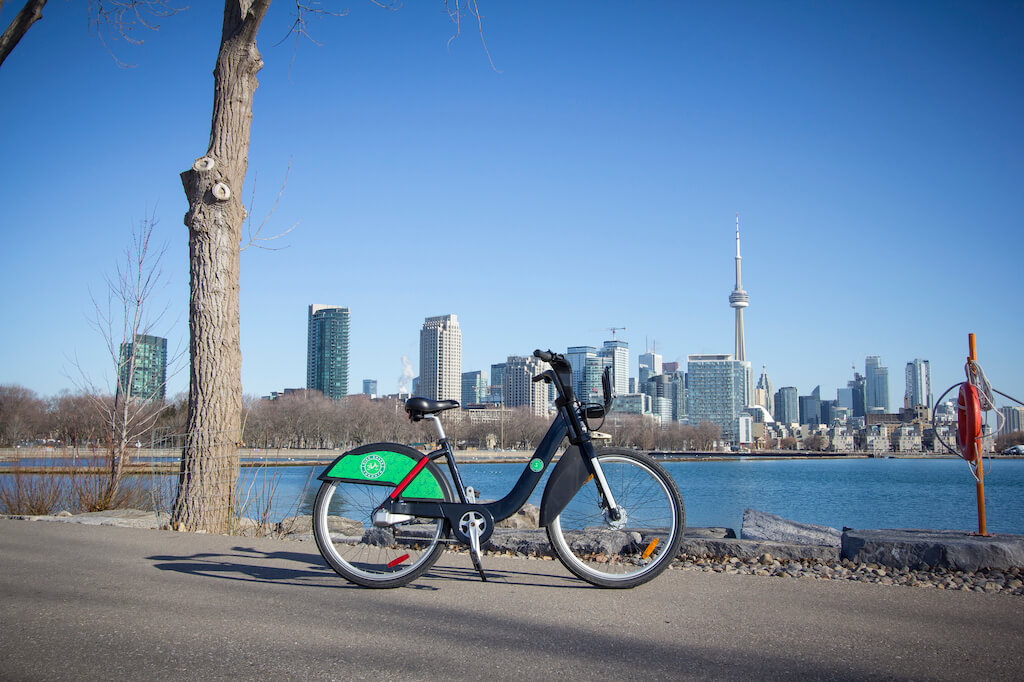Autumn Gear Guide
Find inspiration in our Gear Guide that will keep you out on your bike through wind or rain.
Download NowFor different reasons, Canada’s two largest bike share systems hit records this month, showing the rest of the country and North America how important they are. In Montreal, a public transit strike has triggered an unprecedented surge in bike traffic. Meanwhile, Toronto’s Bike Share program recorded its busiest day ever. Montreal: A Strike Spurs a […]
For different reasons, Canada’s two largest bike share systems hit records this month, showing the rest of the country and North America how important they are.
In Montreal, a public transit strike has triggered an unprecedented surge in bike traffic. Meanwhile, Toronto’s Bike Share program recorded its busiest day ever.
With public transit service sharply reduced amid a citywide strike, Montrealers have turned en masse to cycling—and the numbers are staggering.
On June 11, Montreal’s Saint-Denis Street bike path, part of the Réseau express vélo (REV), saw a 71% jump in traffic compared to usual levels, according to Eco-Counter, a company that tracks urban cycling activity.
“All records were essentially shattered,” David Beitel, Eco-Counter’s data services lead, told the CBC. “Cycling in a specific day, cycling in a specific hour—it all hit new highs.”
At the intersection of Saint-Denis and Rachel Street, 14,676 trips were recorded in a single day—a new all-time high. The nearby underpass at Saint-Denis and des Carrières Avenue wasn’t far behind, clocking in 14,446 crossings, a 36% increase over the previous record set just days earlier.
Other major bike corridors also passed the 10,000 daily crossings mark:
Berri Street–Maisonneuve Boulevard: 10,823 crossings
De la Commune Street–King Street: 10,135 crossings
Montreal’s public bike-sharing system, Bixi, saw its own records tumble. On June 10, 98,500 Bixi rides were registered—obliterating the previous daily record of 83,897, set just the day before.
During a single peak hour, from 5 to 6 p.m., 1,761 cyclists passed Saint-Denis and Rachel, reinforcing the efficiency of protected bike infrastructure during transit disruptions.

One of Montreal’s ubiquitous BIXI users on the Maisonneuve cycle track downtown.
Photo by Chris Bruntlett
While Montreal’s record-breaking came during a public transport crisis, Toronto’s milestone was driven by growing enthusiasm for active transportation and the city’s Bike Month festivities. On June 7, Bike Share Toronto logged more than 37,800 trips in a single day, setting a new all-time daily ridership record.
“🚲 37,800+ trips in a single day?! Yup, we SMASHED our all-time daily ridership record on Saturday,” the program announced on social media. “Thanks, Toronto — you’re making this our biggest year yet. 🙌”
Operated by the Toronto Parking Authority, Bike Share Toronto has become a key part of the city’s transportation network. The system includes 6,850 bikes and 625 docking stations, and operates 24 hours a day, 365 days a year. Since its launch in 2011, it has logged over 15.9 million rides.
Alternatively, Bixi in Montreal shuts down for the winter, even though the city’s safe cycling network is maintained even when the snow flies.
Bike Share’s popularity has grown steadily, with year-over-year ridership increases of 21% from 2019 to 2020, and 17% from 2020 to 2021. A report from the CBC indicates the program is almost too successful as growth in ridership and interest is eclipsing supply, even though supply has basically doubled over the past five years.
This summer, the program expanded service to the Toronto Islands for the first time—giving locals and visitors the chance to explore the scenic area by bike with ease. The islands expansion, along with increased station density not just downtown but throughout the city, signals Toronto Bike Share’s evolution from a niche offering to a serious mobility option for Torontonians losing patiences with traffic congestion and even congestion and cost on mass transit lines.

Bike Share Toronto
While Montreal and Toronto lead the way, some of Canada’s largest cities still lack public bike share systems.
At the top of the list are large cities such as Calgary, Edmonton and Ottawa. In addition, Victoria, BC, which has referred to itself as Canada’s bike capital still doesn’t have a city bike share system. Why? The opportunity is there. The momentum is there. Get to it.
Calgary and Edmonton allow private companies to offer e-bike and e-scooters in the city, but the impact is not significant as it is more focussed on profit and not on allowing a real alternative to the automobile.
Together, the milestones in Montreal and Toronto clearly show a shift in how Canadians move through their cities. Cycling is no longer an alternative—it’s becoming mainstream, especially with the growth of safe cycling infrastructure, which has been proven with study after study to grow cycling numbers.
The time is now.
Find inspiration in our Gear Guide that will keep you out on your bike through wind or rain.
Download Now
Leave a comment